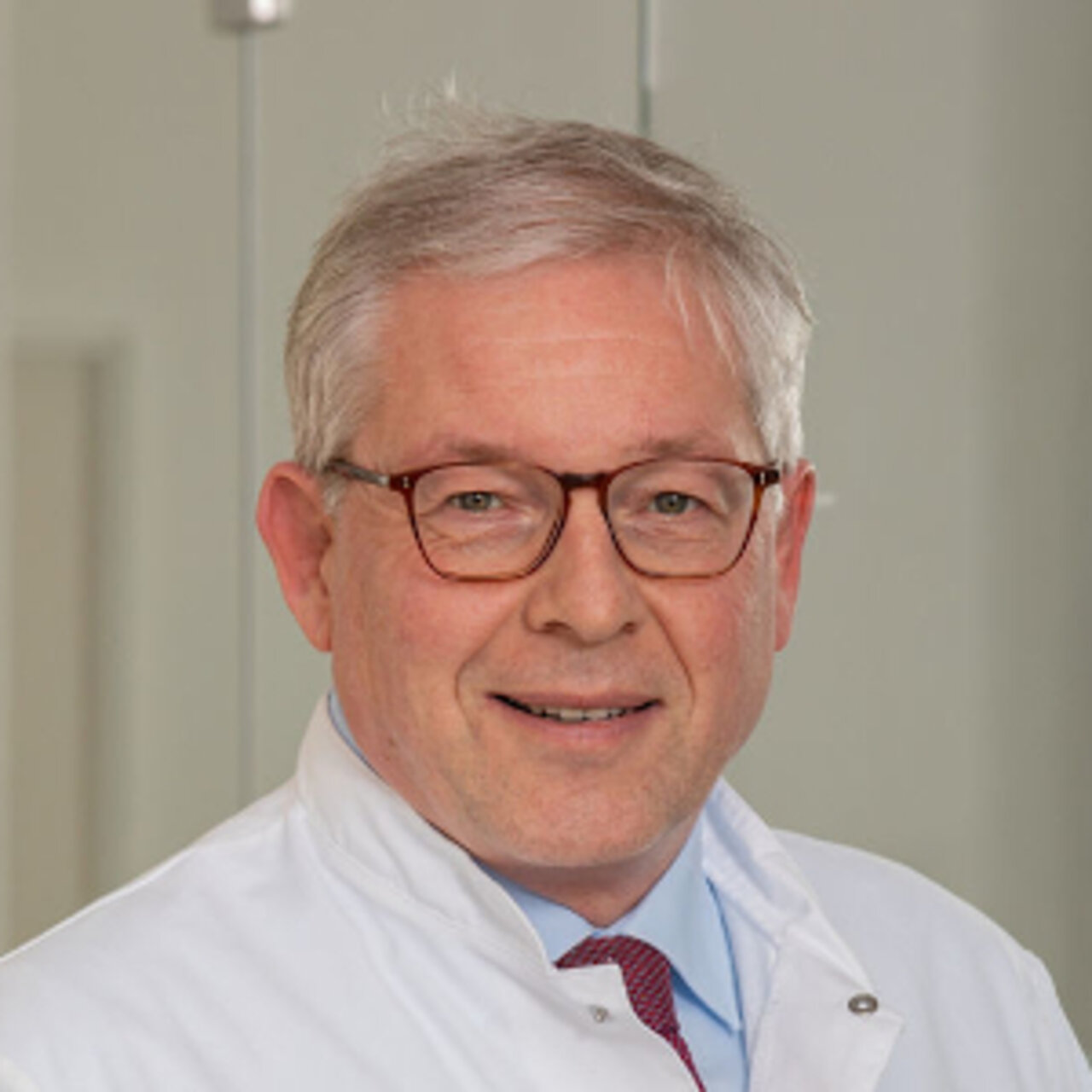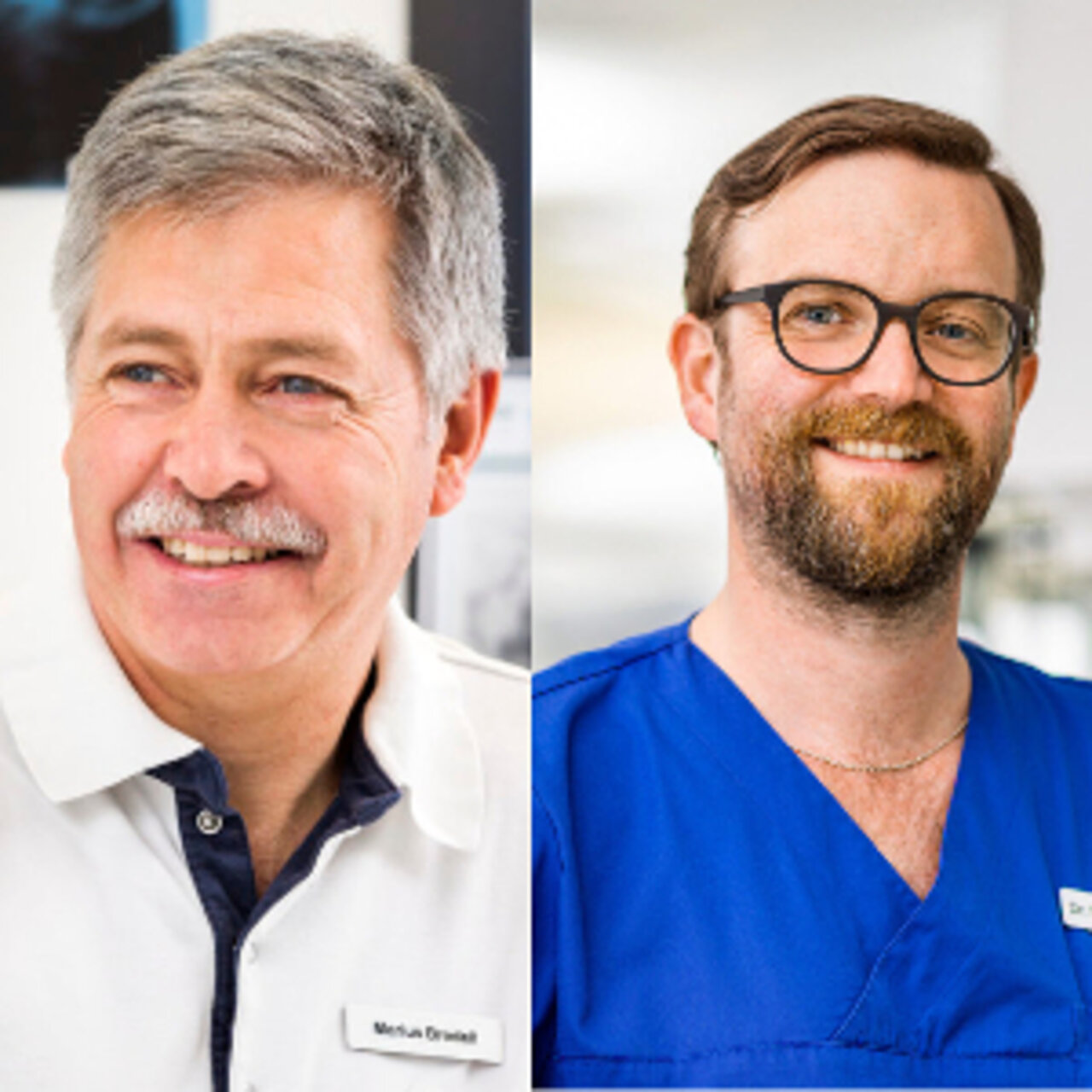Specialists in Oral and Maxillofacial Surgery
2 Specialists found
Information About the Field of Oral and Maxillofacial Surgery
What is oral and maxillofacial surgery?
Oral and maxillofacial surgery is a specialist area of medicine which involves the diagnosis, treatment, prevention and rehabilitation of diseases and injuries of the teeth, the mouth cavity, the jaw and the face.
Which specialist qualifications do oral and maxillofacial surgeons have in Germany?
This area requires a special qualification, namely training not only in medicine but also in dentistry. This is why double doctorates in the form of “Dr. med. Dr. dent.” can often be found among oral and maxillofacial surgeons. The first two years of study in medicine can be credited towards the degree in dentistry. Oral and maxillofacial candidates begin the four year shortened degree in dentistry from the first state examination (preliminary examination). Once both licences have been obtained, the five year specialist training as an oral and maxillofacial surgeon takes place.
Which diseases are treated in oral and maxillofacial surgery?
- Surgery for malformations of the head and face
- Implantology
- Dentoalveolar surgery
- Diseases of the mandibular (jaw) joint
- Cleft lip and palate
- Orthopaedic surgery on the bones of the face, eg. jaw misalignment
- Pre-prosthetic surgery
- Plastic-reconstructive surgery of the face
- Traumatology
- Tumour surgery
Dental implants are artificial tooth roots made of titanium or ceramic, which anchor a denture securely in the mouth. The insertion of the implant is a small surgical procedure, which can be carried out under local anaesthetic.
Jaw misalignment can create various problems, including cosmetic ones. The most important is misalignment of the teeth, which can impair chewing function. If the lips cannot be completely closed, this can lead to dry mouth and mouth breathing. This in turn can cause speech disorders and increased infections.
The cleft lip and palate is a congenital malformation of the face. It is caused by tissue which should develop into the nose, lip and upper jaw in the fifth to ninth week of pregnancy, failing to knit together. Depending on the severity of the malformation, various surgical techniques are used to close the gap.
Plastic-reconstructive procedures fall within the scope of tumour surgery, care following accidents and malformation surgery. The main priority of this discipline is to restore important functions, such as speaking, chewing and swallowing. In cases of visible and disfiguring defects, cosmetic reconstruction can also be important. The basis of plastic-reconstructive surgery is the transfer and transplantation of a patient’s own tissue. Skin, muscle, fascia, nerve, cartilage, bone and fat tissue are eligible for this. By using material produced naturally in the body, an immune response against the transplant is avoided. The correct choice of wound margin location is also important; unobtrusive scars can be achieved by positioning in tension-free areas and using gentle suture material and techniques.
A trauma is damage, injury or wound caused by external influence. Oral and maxillofacial traumatology has been a discipline since the First World War. Soft tissue damage as well as complex bone and soft tissue injuries are treated. The aim of facial treatment is always to establish functionality with the best possible aesthetic result.
Tumours in the mouth, jaw and facial area are formations of new tissue, which have eluded the body’s control and reproduce themselves autonomously. Tumours can be benign or malignant. With most malignant tumours in the head and neck area, the surgical removal of the tumour is the preferred treatment method. The head-neck region is a highly sensitive area for operations, as not only function but also aesthetic is very important here. If removal of bone and pieces of tissue is necessary, they can subsequently be replaced with material produced in the body using plastic-reconstructive surgical methods.
Which specialised surgical methods are used in oral and maxillofacial clinics?
Oral surgery
Oral surgery includes treatment of damage to the teeth, among other things. Knocked-out teeth can in some cases be inserted again. This can take place following a radiological investigation of further injury and the anatomy of the patient under local anaesthetic. Pieces of tooth which have been knocked out can only partially be “glued back”; often the removal of the rest of the tooth and replacement with an implant is necessary.
The main task of oral surgery in young patients is the surgical removal of teeth, above all, wisdom teeth. For older patients, the insertion of dental implants is very important. These operations can be carried out under local anaesthetic, or, if requested by the patient, under sedation or general anaesthetic.
Maxillary (Jaw) surgery
Procedures for corrections to the jaw are carried out using access through the mouth cavity, so that no visible scars are left. The jaw is mobilised during the operation, so that the upper and lower jaws can be moved in all directions. The jaw is then fixed in the required position using titanium plates. In some cases, the upper jaw must be widened if it is too narrow (surgically assisted palatal expansion).
Facial surgery
If possible, operations to the face using access through the mouth cavity without external incision are preferred. Endoscopic procedures are used, also known as “key-hole” techniques. The most common fracture to the face is to the cheek bone; in many cases, injuries to the eye socket are associated. After big and multiple fractures, supporting pillars are firstly constructed in the facial bones in order to ensure stability, before a plastic reconstruction can be carried out. Fractures to the facial bones are usually treated using small titanium plates, which temporarily remain in the face.
When is an oral and maxillofacial specialist necessary?
Many diseases in the oral and maxillofacial area are detected by the patient’s dentist or general practitioner. They then decide whether an oral and maxillofacial specialist should be consulted for further diagnosis and treatment. For example, in cases of misalignments of the jaw which cannot be adequately corrected by dental braces, a surgical intervention is indicated. In general, an oral and maxillofacial specialist should be consulted when an operation is considered difficult or individual risks are indicated. The double doctorate in medicine and dentistry enables the oral and maxillofacial specialist to provide the patient with the appropriate care.
How much does an oral and maxillofacial treatment cost in Germany?
Costs for foreign patients for a treatment in Germany are strictly regulated by the fee scale for the German medical profession (Gebührenordnung für Ärzte, or GOÄ). Physicians in Germany are not permitted to calculate fees themselves for medical services, they are legally obliged to adhere to the GOÄ fee scale.
In order to calculate the costs for a specific treatment in Germany, oral and maxillofacial surgeons firstly need detailed information about the specific requirements of the treatment. This can include doctors’ letters, reports and pictures which are initially transferred to the clinic. The clinic or physician will then provide a cost estimate. In most cases, the costs must be paid before treatment is given.
Which doctors and clinics specialise in oral and maxillofacial surgery?
You clearly want the best medical provision if you need an oral and maxillofacial surgeon, which is why it is natural for a patient to wonder: how do I find the best clinic for oral and maxillofacial surgery in Germany? As there is no objective answer to this question, and a serious doctor would never claim to be the best, you can only rely on the expertise of a doctor. We can help you find an expert for your disease. All doctors and clinics listed have been verified by us as having excellent specialist skills in the area of oral and maxillofacial surgery, and look forward to your enquiry or request for treatment.
Sources:
- Bleese und Mommsen, Kurzlehrbuch Chirurgie, 2010, Thieme
- Schwenzer und Ehrenfeld, Mund-Kiefer-Gesichts-Chirurgie (ZMK-Heilkunde), 2010, Thieme

